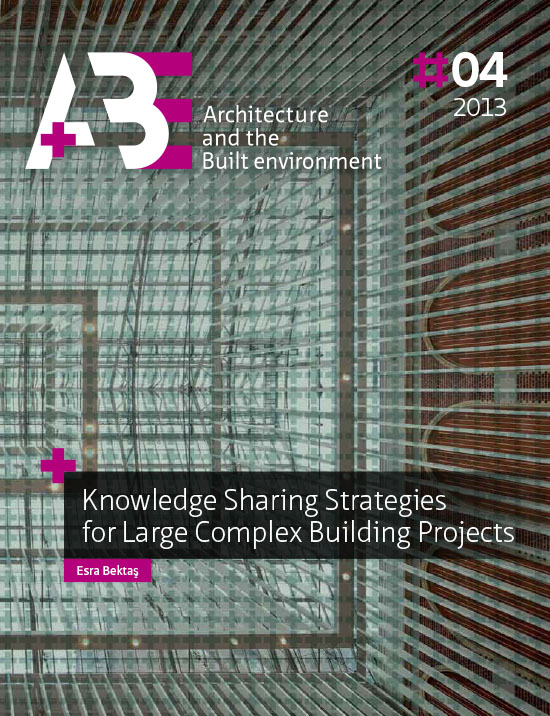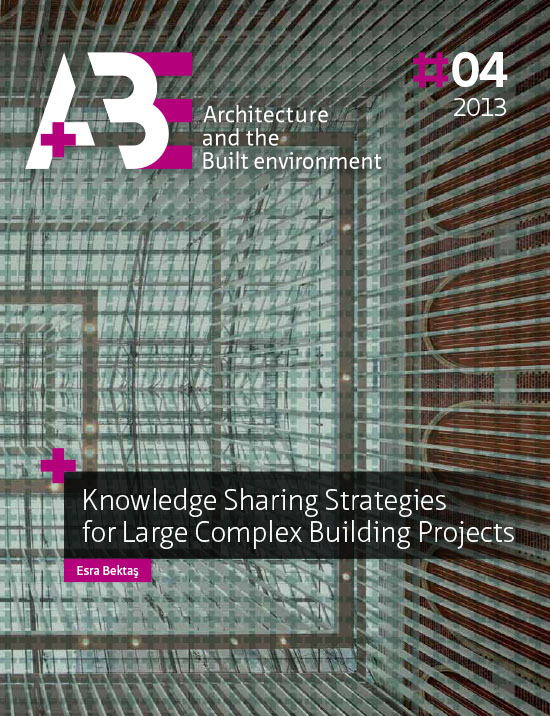- Engels
- Study
- nature & science
- KNOWLEDGE SHARING STRATEGIES FOR LARGE COMPLEX BUILDING PROJ
BEKTAS, ESRA
KNOWLEDGE SHARING STRATEGIES FOR LARGE COMPLEX BUILDING PROJ
39,95incl BTW
Vertrouwd sinds 1927
Persoonlijke aandacht en advies
Vanaf 17,50 gratis verzenden NL & BE
Meer dan 150.000 artikelen online
Omschrijving KNOWLEDGE SHARING STRATEGIES FOR LARGE COMPLEX BUILDING PROJ
The construction industry is a project-based sector with a myriad of actors such as architects, construction companies, consultants, producers of building materials (Anumba et al., 2005). The interaction between the project partners is often quite li
mited, which leads to insufficient knowledge sharing during the project and knowledge being unavailable for reuse (Fruchter et al. 2002). The result can be a considerable amount of extra work, delays and cost overruns. Design outcomes that are suppos
ed to function as boundary objects across different disciplines can lead to misinterpretation of requirements, project content and objectives. In this research, knowledge is seen as resulting from social interactions; knowledge resides in communities
and it is generated through social relationships (Wenger 1998, Olsson et al. 2008). Knowledge is often tacit, intangible and context-dependent and it is articulated in the changing responsibilities, roles, attitudes and values that are present in th
e work environment (Bresnen et al., 2003). In a project environment, knowledge enables individuals to solve problems, take decisions, and apply these decisions to actions. In order to achieve a shared understanding and minimize the misunderstanding a
nd misinterpretations among project actors, it is necessary to share knowledge (Fong 2003).
Sharing knowledge is particularly crucial in large complex building projects (LCBPs) in order to accelerate the building process, improve architectur
al quality and prevent mistakes or undesirable results. However, knowledge sharing is often hampered through professional or organizational boundaries or contractual concerns. When knowledge is seen as an organizational asset, there is little willing
ness among project organizations to share their knowledge. Individual people may recognize the need to promote knowledge sharing throughout the project, but typically there is no deliberate strategy agreed by all project partners to address knowledge
sharing.
mited, which leads to insufficient knowledge sharing during the project and knowledge being unavailable for reuse (Fruchter et al. 2002). The result can be a considerable amount of extra work, delays and cost overruns. Design outcomes that are suppos
ed to function as boundary objects across different disciplines can lead to misinterpretation of requirements, project content and objectives. In this research, knowledge is seen as resulting from social interactions; knowledge resides in communities
and it is generated through social relationships (Wenger 1998, Olsson et al. 2008). Knowledge is often tacit, intangible and context-dependent and it is articulated in the changing responsibilities, roles, attitudes and values that are present in th
e work environment (Bresnen et al., 2003). In a project environment, knowledge enables individuals to solve problems, take decisions, and apply these decisions to actions. In order to achieve a shared understanding and minimize the misunderstanding a
nd misinterpretations among project actors, it is necessary to share knowledge (Fong 2003).
Sharing knowledge is particularly crucial in large complex building projects (LCBPs) in order to accelerate the building process, improve architectur
al quality and prevent mistakes or undesirable results. However, knowledge sharing is often hampered through professional or organizational boundaries or contractual concerns. When knowledge is seen as an organizational asset, there is little willing
ness among project organizations to share their knowledge. Individual people may recognize the need to promote knowledge sharing throughout the project, but typically there is no deliberate strategy agreed by all project partners to address knowledge
sharing.
Specificaties
- MerkBK Books
- GroepEXACTE WETENSCHAP (910)
- Barcode9789461861740
- LeverstatusActief
Reviews
0.0/5.0
Gemiddelde uit 0 reviews
Meest behulpzame reviews
Nog geen reviews geschreven


